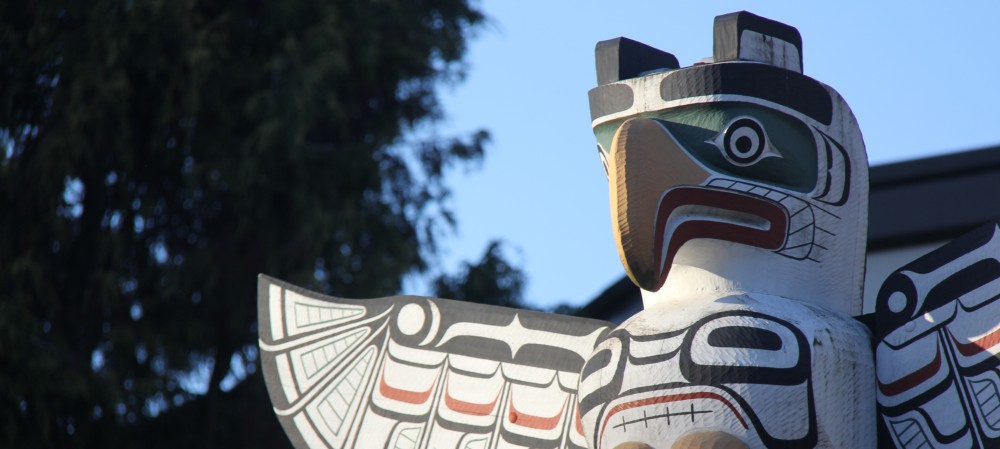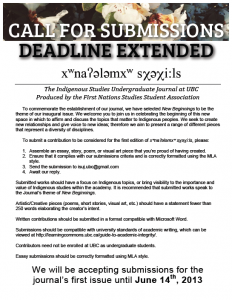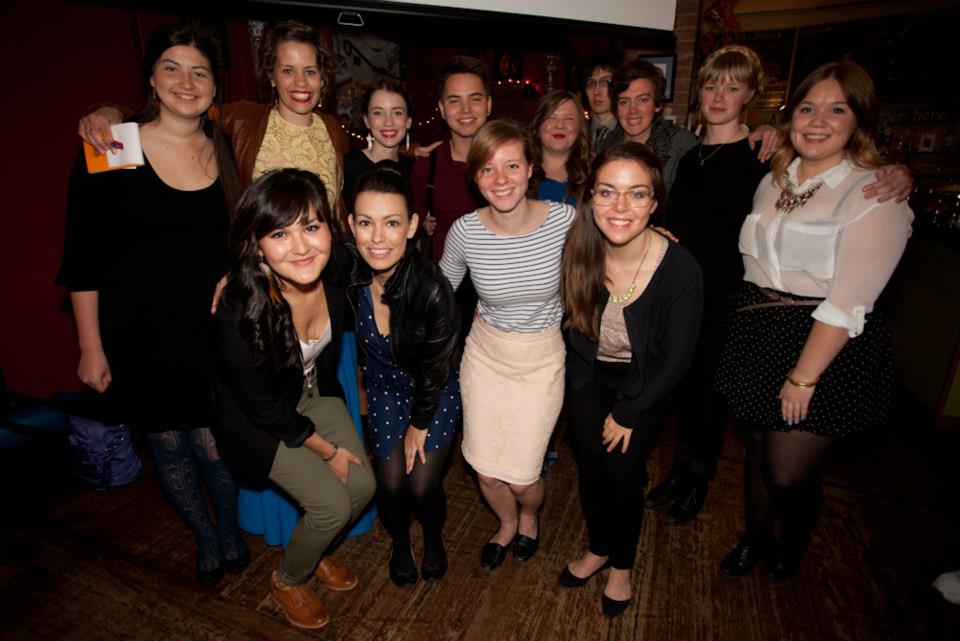Hey there, Matthew Ward here, incoming President of FNSSA and also UBC’s unofficial resident pizza-lover. I am from Driftpile Cree Nation in Northern Alberta and am going into my…5th (ugh) year here at UBC and have been involved with the First Nations Studies Program (yay!) for 2 years. During this time, I’ve done a lot of learning, and with that, a lot of growing.
I’ve had to take seriously questions surrounding my identity; my Cree father and white mother, and the critical identity politics that surround being a full-status, yet mixed-identity Indigenous person. I’ve had to confront my queer identity, as a gay man, and how that positions me within my school, Vancouver, my family, my community (Driftpile Cree Nation), my hometown (Slave Lake, Alberta), my relationships, my language, and my culture. It seems hard to believe that I’ve only been involved with FNSSA for a year and a half, and in that time have been able to contribute to the community through supporting the fantastic projects that have come to life through this student group; from the journal (coming soon!) to the blog (where you’re reading this!). From our fantastic member-appreciation events (Double DD Pizza anyone?) to the successful fundraisers (like the $1200 raised this past Spring!). None of this would have been possible without the support of our team, and the community we have built. Our support for one another is matched only by our accountability to each other. With FNSSA, I’ve been given the opportunity to explore my identity and ask difficult questions around people that, not only genuinely care, but are experiencing these life changing (and often crisis-inducing) questions too!
As a club, we operate so closely in our personal lives, our academic lives, and our extracurricular activities that we get comfortable sitting together, walking together, spending every waking moment together (kidding, but only a little). I’m here to tell you that you’ve got absolutely nothing to worry about if you are wanting to get involved with our tight group! FNSSA is an inclusive community that values all of its members, new and old, and the wonderful contributions they make! What made becoming a part of FNSSA so easy is that I didn’t need to know everything about myself or the world, I didn’t need to be able to explain how I live decolonization through my life, and I definitely didn’t need to be Indigenous (though I am). What mattered to this group of people was that I supported the work we felt was right, ensured everything we did was rooted in giving back to the community, and to make sure we held each other accountable to our actions. It is through these values that I’ve lived the last 3 years of my life at UBC, and it is these values that I give credit to for the many successes our student club and its fantastic members have achieved. This club has supported me at my highs and lows, and has been a contributing factor in my decision to continue my studies in academia. As one of many leaders in FNSSA, I want to ensure that this space, this club, continues to offer that to FNSP students, UBC students, Indigenous peoples, and non-Indigenous peoples. All it took was for me to show up at a meeting where I didn’t know a single person (which happened to be the first meeting for the journal) and 1.5 years later, here I am among many others, working to better our communities, challenging each other, growing, and having fun along the way.
It is my hope that through this post, you will see just how amazing FNSSA has been; a highlight of my experience here at the University of British Columbia, and I want you all to be a part of it. FNSSA is always looking for fun, passionate, and excited people to take on a multitude of projects. Among those already stated, we’ve presented at conferences (F-Word, Student Leadership Conference), we’ve facilitated workshops, and we manage online content through our blog and a social media presence on Facebook. We’ve engaged multiple levels of community organizations, faculties, and student groups in dialogue around Indigenous issues on and off campus. We’ve got a number of upcoming projects in the works too AND we host really fun parties so we can get our groove on!
All this and more could be yours, and I sincerely hope you get to experience what I’ve had the opportunity to experience being a part of this fantastic student club. If you’re interested in getting involved, like us on Facebook to find out when our meetings are, send an email to fnssa.ubc@gmail.com. As an alternative, you can contact me personally at mattward.ubc@gmail.com.
I look forward to (hopefully) getting a chance to know you!
Many thanks, and keep it real,
Matt Ward

 Follow
Follow
